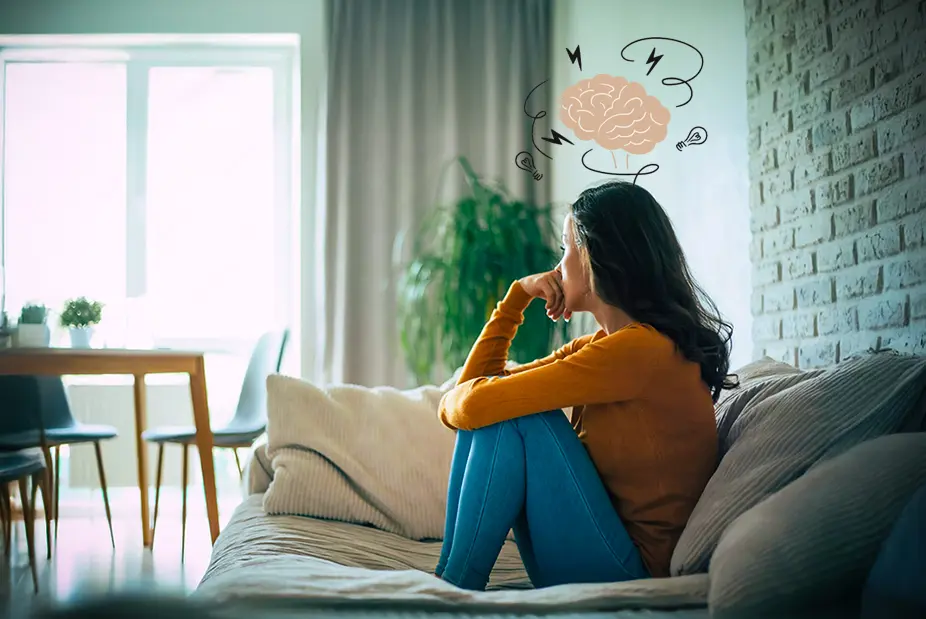Depression can feel like a dark cloud hanging over every part of your life. It affects your thoughts, energy levels, relationships, and even your ability to complete simple daily tasks. Whether it shows up as sadness, hopelessness, or emotional numbness, it can be hard to see a way forward.
But here is the truth! You can feel better. With consistent, healthy coping strategies and the right support, you can take meaningful steps toward improving your mental well-being and regaining control of your life. This blog has detailed 7 reflective and effective strategies to help you combat depression and get back your peace.
7 Tips To Manage Depression And Find Peace
Depression can feel overwhelming, but small, intentional steps can lead to healing. These 7 simple yet practical tips will help you manage depression and move toward inner peace and emotional balance.
1. Acknowledge Your Feelings
The first step in coping with depression is recognizing and accepting your emotions. Don’t ignore or dismiss what you are feeling.
Instead, allow yourself to sit with your emotions without judgment. Naming what you are going through helps you feel less overwhelmed and more in control.
2. Establish a Simple Daily Routine
Depression often disrupts daily structure. You might struggle to get out of bed, stay focused, or stick to plans. Building a simple, manageable routine can help restore a sense of stability. Wake up around the same time each day, take a shower, eat balanced meals, and complete small tasks.
Do everything even when it feels tough. Such small actions create a foundation for mental clarity and emotional strength.
3. Get Moving
Physical activity can lift your mood and reduce symptoms of depression. You don’t have to run miles or hit the gym. Even a short walk, light stretching, or dancing to music in your living room can increase endorphins and improve your mental state.
Movement helps shift energy and reminds your brain and body that they are not stuck.
4. Eat Nourishing Foods
Your diet plays a powerful role in how you feel. Foods rich in vitamins, fiber, and protein support brain health, while processed foods and excess sugar can make depressive symptoms worse.
Try to include fruits, vegetables, whole grains, and lean proteins in your meals. Drink plenty of water and be mindful of how your body responds to what you consume.
5. Stay Connected
Depression thrives in isolation. Even if you don’t feel like talking, connecting with a friend, family member, or therapist can offer comfort. You don’t need to have the perfect words. All that matters is just being heard and supported.
Surrounding yourself with people who care helps reduce feelings of loneliness and hopelessness.
6. Reframe Negative Thoughts
Depression often distorts your thoughts, making everything seem worse than it really is. Start noticing when negative self-talk arises, and challenge it with facts. Ask yourself, “Is this thought 100% true?”
Replace harsh thoughts with compassionate, realistic alternatives. Over time, this practice can shift your perspective and improve your self-esteem.
7. Practice Mindfulness and Relaxation
Mindfulness brings your attention back to the present moment. Breathing exercises, guided meditations, or even short periods of silence can calm your nervous system and help you feel more grounded.
Try setting aside five to ten minutes each day for mindfulness or relaxation to reduce mental clutter and promote emotional balance.
ATL Behavioral Is Here To Help You Find Your Strength Back!
At ATL Behavioral, we understand how difficult it can be to manage depression alone. Our team provides compassionate, evidence-based care to help you move through the fog and find your way back to yourself. Healing is possible, and we are here to guide you every step of the way.
Take the first step today! Contact ATL Behavioral to schedule a consultation and begin your journey toward better mental health. You are not alone in this, and support is just a call away.




